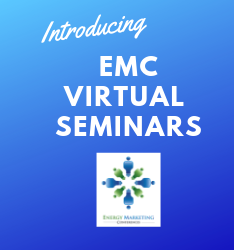|
|
|
|
|
Proposal On Connecticut Shared Clean Energy Program Rules Would Prohibit Telephonic Contracting, Limit Termination Fees
The following story is brought free of charge to readers by EC Infosystems, the exclusive EDI provider of EnergyChoiceMatters.com
The Connecticut PURA opened Docket 19-07-01 for a review of proposed requirements for a statewide shared clean energy facility program
On July 1, 2019, the Department of Energy and Environmental Protection (DEEP) Bureau of Energy and Technology Policy (BETP) submitted an application pursuant to Section 16-1-45 et seq. of the Regulations of Connecticut State Agencies requesting that the Public Utilities Regulatory Authority (Authority) initiate a proceeding to review and approve DEEP’s Proposed Program Requirements for the Statewide Shared Clean Energy Facility Program (SCEF), pursuant to Section 16-244z(a)(1)(C)of the General Statutes of Connecticut (Conn. Gen. Stat.).
Conn. Gen. Stat. § 16-244z(a)(1)(C) requires DEEP to submit its SCEF Proposed Program Rules and tariffs to the Authority for review and approval on or before July 1, 2019, and for the Authority to approve or modify such requirements and tariff proposals on or before January 1, 2020.
In opening the docket, PURA noted that DEEP also requested the Authority establish a working group to explore consolidated billing.
"Due to the statutory deadline in this proceeding, the Authority will not establish a working group as part of this docket, but encourages DEEP and interested stakeholders to work together to resolve consolidated billing issues and present their proposed plans to the Authority for approval or modification in a separate proceeding," PURA said
DEEP noted that its proposed rules provide for the electric distribution companies (EDCs) to credit a subscriber’s account each month for the subscriber’s allocation of SCEF’s reported production, but the subscriber’s corresponding monthly payment to the subscriber organization occurs independently.
DEEP noted that, in consolidated billing, the subscriber’s payment to the subscriber organization would flow through the EDC, "which could simplify the subscriber organization’s relationship with the subscriber, facilitate the subscriber organization’s recruitment efforts, and streamline its subscription process. DEEP believes this is an interesting approach to consider, but further discussion is needed to assess how it can be incorporated into
the EDC billing system."
Under DEEP's proposed program, on an annual basis for a total of six (6) years, the EDCs shall conduct a procurement process for the
solicitation of Bids for Shared Clean Energy Facilities, up to an aggregate total of twenty-five (25)
megawatts (MWs) of capacity per year. The twenty-five
(25) MWs shall be apportioned to the EDCs based on each EDC's percentage share of the EDCs' total
combined electric load in Connecticut at the time of the solicitation issuance.
Under DEEP's proposed program, an EDC will purchase the Subscribed Energy, inclusive of both energy and associated
RECs, produced by a selected Shared Clean Energy Facility at the Purchase Price approved by PURA for the
SCEF. The EDC will allocate the dollar value of that purchase as On-bill Credits to the Subscribers of the SCEF
on a monthly basis through Subscribers’ electric bills with the EDC. Concurrently, the EDC will purchase any
Unsubscribed Energy, inclusive of both energy and associated RECs, produced by the Shared Clean Energy
Facility at the Market Price. The EDC will remit payment for that purchase in accordance with EDC's tariff
The purchase price for each SCEF will be based on a competitive bidding process.
Under the proposed program, subscribers to the shared clean energy facilities are limited to the following classes of customers:
• Low-income Customers;
• Moderate-income Customers;
• Small business Customers;
• State or municipal Customers;
• Commercial Customers; and
• Residential Customers, other than LMI Customers, who either: (1) reside in a rental or leased
property, or a property where the Customer does not control the property's roof, such as a multi-unit condominium; or (2) reside in their own property, but have written documentation from a
rooftop solar installer that they are unable to install solar panels on their roof
No less than ten (10) percent of the total capacity of a SCEF must be subscribed to Low-income Customers and/or Affordable Housing Facilities
No less than an additional forty (40) percent of the estimated annual kWh production of a SCEF must be subscribed to Low-Income Customers, Moderate-income Customers, Affordable Housing Facilities, and/or Low-income Service Organizations.
Concerning enrollment, the proposal provides that no entity or person shall subscribe a Customer to a SCEF without the Customer’s written or
electronic signature, as defined in section 1-267 of the General Statutes, on a Subscriber Agreement.
"A voice recording or verbal consent over the telephone cannot constitute the written or electronic
signature by the Customer that is required to demonstrate a Customer’s consent," the proposal states
The proposed rules would allow providers of the shared energy subscriptions to impose on residential customers a cancellation fee of no more than the value of the Monthly Payment
Arrangement fee for three months, or the equivalent of three months’ Credit value,
outlined in the Subscriber Agreement. The proposed rules would not impose any cap on non-residential termination fees.
See more details on the proposed rules here
ADVERTISEMENT Copyright 2010-16 Energy Choice Matters. If you wish to share this story, please
email or post the website link; unauthorized copying, retransmission, or republication
prohibited.
PURA Opens Proceeding To Review Shared Clean Energy Program
Addresses Request To Examine Consolidated Billing
July 11, 2019
Email This Story
Copyright 2010-19 EnergyChoiceMatters.com
Reporting by Paul Ring • ring@energychoicematters.com
NEW Jobs on RetailEnergyJobs.com:
• NEW! -- Energy Contracts Counsel -- Retail Supplier
• NEW! -- Senior Natural Gas Energy Trader -- Retail Supplier
• NEW! -- Operations Manager -- Retail Supplier
• Quality Assurance and Customer Service Manager
-- Retail Supplier
|
|
|
|











